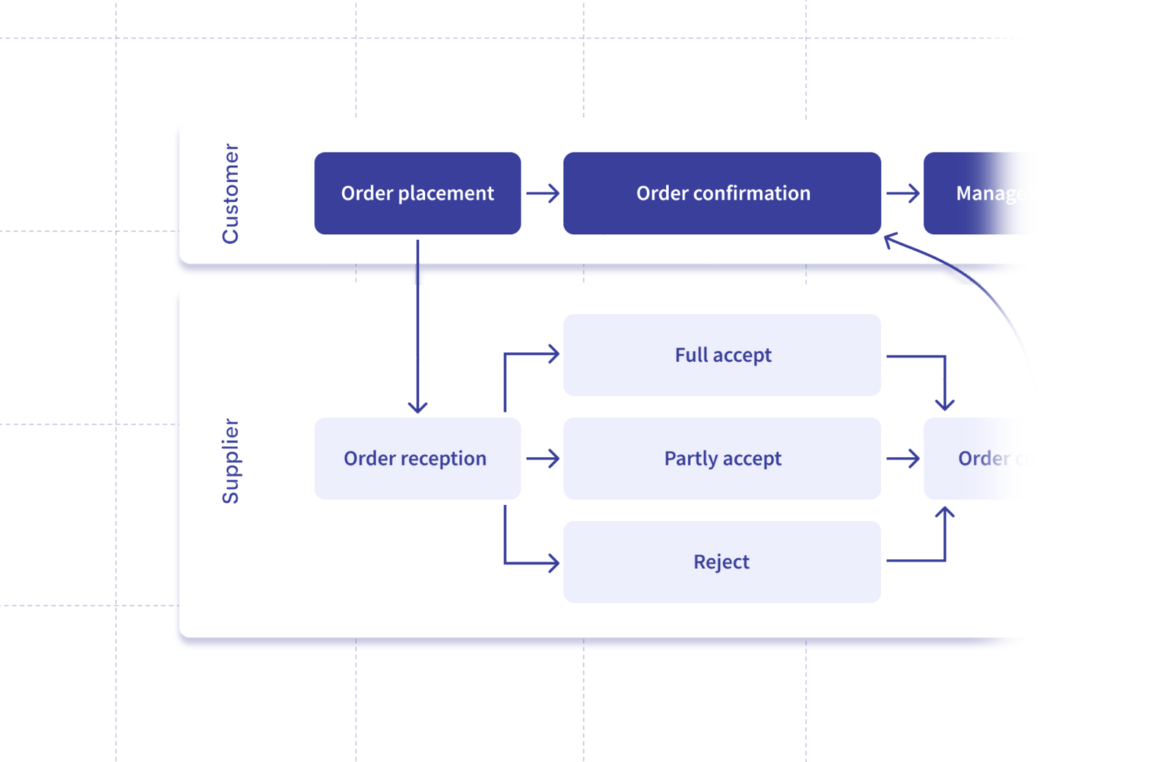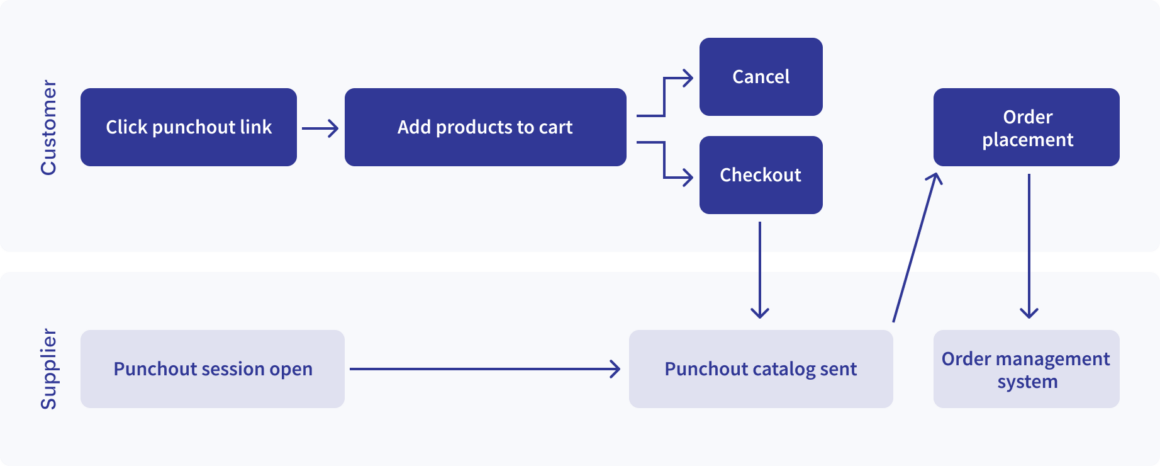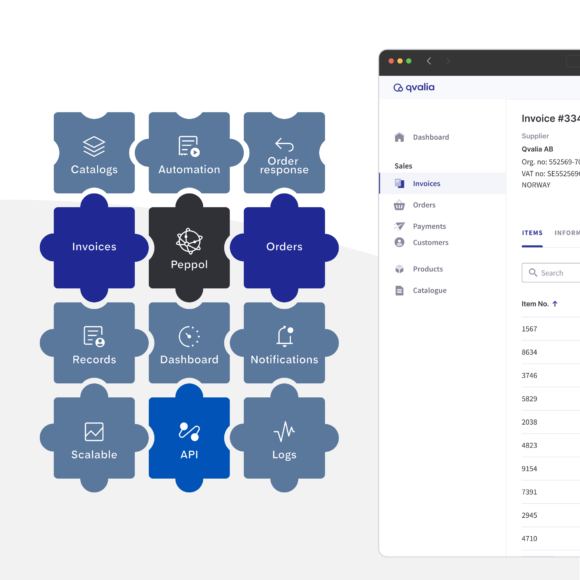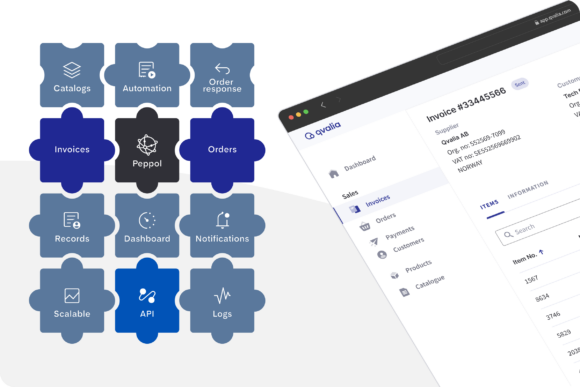
Peppol is an international business network that enables companies to exchange electronic invoices, purchase orders, and other documents. It works perfectly for electronic order management.
The Peppol network is based on standardized business-to-business (B2B) messaging specifications, known as Peppol BIS (Business Interoperability Specifications). One of the essential components of Peppol is the e-order format, which defines the structure and content of e-orders exchanged through the network.
The Peppol BIS Ordering format is designed to enable the efficient exchange of purchase orders between businesses and their suppliers. The Peppol format specifies a set of standardized fields and data elements that must be included in an e-order, such as the buyer and seller’s name and address, the order’s date and time, the products or services being ordered, and the delivery and payment terms.
The Peppol order management process
One of the main benefits of the Peppol BIS Ordering format is that it enables interoperability between different e-procurement systems. Because the format is standardized, businesses can use different e-procurement systems and still be able to exchange e-orders with each other. This helps to reduce administrative burdens and streamline communication between buyers and sellers.
In brief, the order process works as follows:
- The customer creates an order in their purchasing system and submits it via catalog, purchasing system, or manual entry.
- The order is sent via Peppol as a structured message to the supplier, requiring a Peppol ID. The customer provides necessary information about the product or service through email, Excel, PDF, or the website. They can also access stock and prices through Peppol’s e-catalog. The order message must include the chosen product or service, quantity, and other identifiers.
- The supplier receives the message and can accept the order entirely, partially accept it with changes in quantity or substitute products, or reject the order entirely.
- The supplier communicates their response through a confirmation message sent back to the customer. The confirmation includes information on stock supply, delivery times, and more. Peppol also supports order messages without confirmation, called Peppol BIS Order only.
- The customer updates the order status in their system, and the supplier proceeds with the agreed-upon delivery.

Additional messaging tech for procurement
In addition to Peppol e-invoices and the Peppol BIS Ordering format, the Peppol network offers a range of other capabilities for procurement. New technologies include:
- E-catalogs: A standardized format for sharing product and service catalogs between buyers and sellers.
- Punchout: A way for buyers to access a supplier’s catalog (which can be tailor-made based on e.g., current agreements and frameworks) and send orders directly from their e-procurement system, enabling them to browse and order products and services seamlessly. A perfect enabler for B2B e-commerce.
- Request for Quotation (RFQ): A standardized format for requesting quotes from suppliers, enabling buyers to compare prices and select the best supplier for their needs.
- Contract management: A way businesses can manage their contracts with suppliers electronically, including contract creation, monitoring, and renewal.
These e-order capabilities can help businesses improve their procurement processes, reducing administrative burdens and streamlining supplier communication. The Peppol network also offers a range of other benefits, including improved visibility into procurement processes, increased efficiency, and reduced errors and delays.
Summary
In conclusion, the Peppol BIS Ordering format is a critical component of the Peppol e-procurement network, enabling the efficient exchange of purchase orders between businesses and their suppliers. The network also offers a range of other e-order capabilities, including e-catalogs, punch-out, RFQs, and contract management, which can further enhance procurement processes. As the use of e-procurement continues to grow, it is expected that the Peppol network will become an increasingly important tool for businesses looking to streamline their procurement processes and improve their bottom line.



